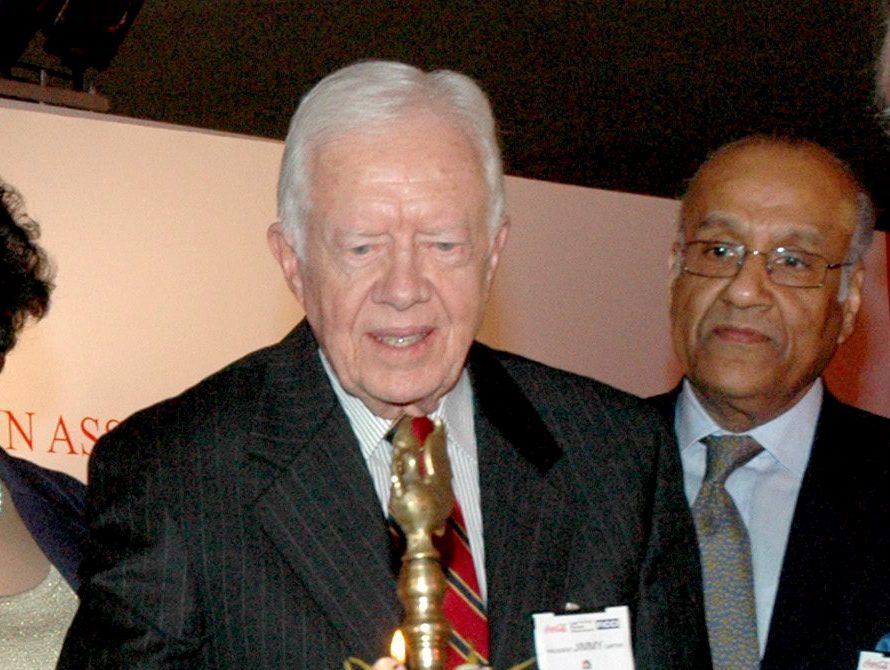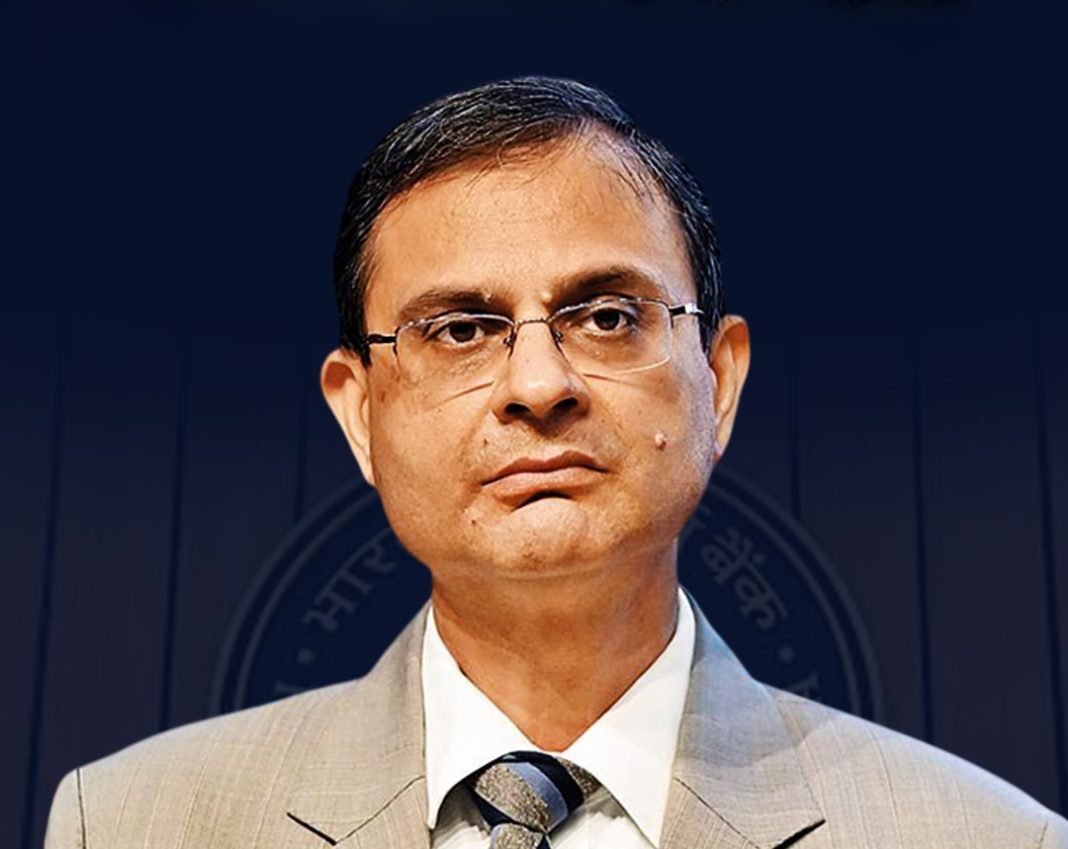Washington, Dec 30: Jimmy Carter, the 39th US president and the third American leader to visit India during which a village in Haryana was named Carterpuri in his honour, has died peacefully at his home in Plains, Georgia surrounded by his family.
Carter, who died Sunday at 100, was the longest-lived president in US history.
“Today, America and the world lost an extraordinary leader, statesman and humanitarian,” President Joe Biden said in a statement.
Carter is survived by his children — Jack, Chip, Jeff, and Amy; 11 grandchildren; and 14 great-grandchildren. He was predeceased by his wife Rosalynn and one grandchild.
“My father was a hero, not only to me but to everyone who believes in peace, human rights, and unselfish love,” Chip Carter said.
Carter, a Democrat who served a single term from 1977 to 1981, had been in home hospice care since February 2023 after a series of short hospital stays.
In his statement, Biden said over six decades, with his compassion and moral clarity, Carter worked to eradicate disease, forge peace, advance civil rights and human rights, promote free and fair elections, house the homeless, and always advocate for the least among the people. He saved, lifted, and changed the lives of people all across the globe.
“He was a man of great character and courage, hope and optimism,” said Biden and First Lady Dr Jill Biden.
President-elect Donald Trump said while he “strongly disagreed” with Carter “philosophically and politically”, he also realised that he truly loved and respected “our country, and all it stands for”.
“He worked hard to make America a better place, and for that, I give him my highest respect. He was a truly good man and, of course, will be greatly missed. He was also very consequential, far more than most Presidents, after he left the Oval Office,” Trump said.
Carter was considered a friend of India. He was the first American president to visit India after the removal of the emergency and victory of the Janata Party in 1977. In his address to the Indian parliament, Carter spoke against authoritarian rule.
“India’s difficulties, which we often experience ourselves and which are typical of the problems faced in the developing world, remind us of the tasks that lie ahead. Not the Authoritarian Way,” Carter said on January 2, 1978.
“But India’s successes are just as important because they decisively refute the theory that in order to achieve economic and social progress, a developing country must accept an authoritarian or totalitarian government and all the damage to the health of the human spirit which that kind of rule brings with it,” he told members of parliament.
According to the Carter Centre, on January 3, 1978, Carter and then First Lady Rosalynn Carter travelled to the village of Daulatpur Nasirabad, an hour southwest of New Delhi. He was the third American president to visit India and the only one with a personal connection to the country – his mother, Lillian, had worked there as a health volunteer with the Peace Corps during the late 1960s.
“The visit was so successful that shortly after, village residents renamed the area ‘Carterpuri’ and remained in contact with the White House for the rest of President Carter’s tenure,” the Carter Centre, a nongovernmental, nonprofit organisation founded by Carter, said.
“The trip made a lasting impression: Festivities abounded in the village when President Carter won the Nobel Peace Prize in 2002, and January 3 remains a holiday in Carterpuri,” the centre said, adding that the visit laid the groundwork for an enduring partnership that has greatly benefited both countries.
The son of a farmer and a nurse, Carter’s career in public service began in 1943 as a cadet at the United States Naval Academy and then served in both the Atlantic and Pacific fleets. He was later selected to join the elite nuclear submarine programme.
He was elected State Senator in 1962 and Georgia’s 76th Governor in 1970.
Carter launched his campaign for the presidency in 1974 when America was still reeling from the Watergate scandal involving the administration of President Richard Nixon. The scandal led to Nixon’s resignation in 1974.
During his time in office, Carter helped to broker a historic peace agreement between Egypt and Israel in 1979. He established a diplomatic relationship with China and put human rights at the centre of US foreign policy.
He struggled to manage the Soviet invasion of Afghanistan and the Iran hostage crisis when revolutionary students held dozens of Americans in Tehran.
He was defeated by Republican Ronald Reagan in the 1980 election.
After leaving the White House, Carter became a tireless worker for peace, the environment and human rights, for which he was recognised with a Nobel Peace Prize.
He undertook a peace mission to North Korea on behalf of the US government. The mission ultimately resulted in the Agreed Framework, an early effort to reach an accord on dismantling its nuclear arsenal.
President Biden has scheduled a state funeral in Washington for Carter on January 9.(PTI)




